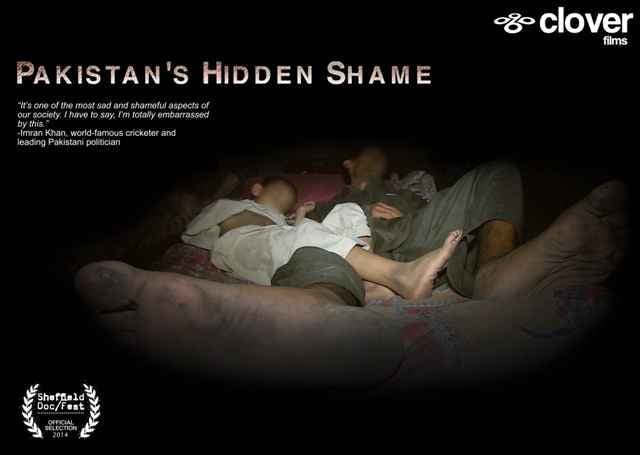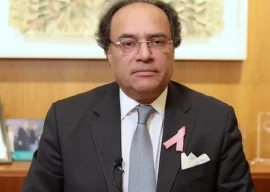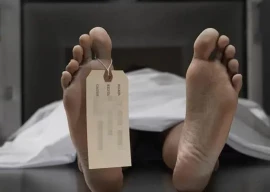
Mohammad Ali Naqvi, the director of the documentary that recently aired on the UK’s Channel 4 spoke to The Express Tribune in an exclusive interview.
What is Pakistan’s hidden shame?
Naqvi: Pakistan is a party to the United Nation's Convention on the Rights of a Child and arguably, has a solid legal framework for the protection of children. Despite this, it's astounding that we have upwards of 1.5 million children living on the streets of which an estimated 90% have been sexually abused. The Pakistani state has failed in implementing laws to protect these children and has demonstrated a profound apathy. This perpetuates the message that we do not care about our children. That is shameful.
Why do you think child abuse is under-reported in Pakistan?
Naeem, a thirteen year old runaway and one of our documentary subjects, told us of an experience in which he was gang raped. When his elder brother found out that Naeem had been the victim of a sex crime, he responded by saying, "that's his own sin," and "we are honourable people ...had I known, I would have burnt him alive." This attitude, in varying degrees of intensity, permeates through parts of our society. The abused are further victimized and held responsible, all for the sake of some antiquated concept of tribal honor. With such a toxic environment, it is no wonder victims remain silent and cases are underreported.

Are girls or boys more vulnerable in Peshawar?
I think children, regardless of gender, they are vulnerable in all of Pakistan.
How should one tackle child abuse?
For short term immediate goals, options include backing the NGOs who work tirelessly and continuously for the betterment of these children. These include SPARC, Sahil, and Aas Trust to name a few. They do great work, and truly understand the complexities in treating these children. In addition, we have to hold our government responsible. For our law enforcement to really care about enforcing the actual laws in place, we as a collective society have to change our approach; we have to stop silencing victims or being in denial. This is the long term goal. If we don't highlight these issues, we reinforce the message that this is not a big deal.
Do you have plans to screen it here in Pakistan, anytime soon?
The film's broadcast has been in various countries, not just limited to the West. It is absolutely imperative that we screen the film in Pakistan. My producer, Jamie Doran, offered on Christiane Amanpour's show, we are willing to offer this film for free to any Pakistani channel interested in airing it. Currently, we are working towards that end.
COMMENTS (7)
Comments are moderated and generally will be posted if they are on-topic and not abusive.
For more information, please see our Comments FAQ



1730959638-0/trump-(19)1730959638-0-165x106.webp)




1724018265-1/City-Traffic-Police-(CTP)1724018265-1-270x192.webp)








When you are tempted to sin remember 1. Death. 2. Allah is watching you 3. The Angels are recording you.
May Allah guide us all Ameen.
We need to bring a healthy change in our cultural beliefs and values, provide children with neighborhoods and communities that are safe from drugs etc, a family that is supportive and most of all children need to get into schools. As Pakistanis this is our collective responsibility.
@observer : Great man. So if west is doing something then we should do it too. Regardless of whoever is doing this, its embarrassing as a society and as a human being.
@Observer: Agreed with your point. The only difference is the people committing in West are educated and do this in organized way.
We need a specialised nationwide Police task force with experienced prosecutors to address voilence against women and children on an urgent basis.
We also need to address the absorption of Afghan culture by our mullah's and society in KPK on an urgent basis (like "bachabazi").
Can someone please listen!
What is hidden shame here is an open shame in the west.This is the difference.Perhaps the writer wishes to make it open.
Watch all the negative comments about this documentary Mr. Naqvi will be demeaned in a similar fashion that Miss Chinoy was with her film "Saving Faces" when she won the Oscar. Most Pakistanis do not want to see the ills of the society published, they do not want others to see their insufficient attempt as citizens for the ills that plague their fellow citizens. The sexual rape of minors is a sad reflection of the people of Pakistan to address the problems. With millions being transmitted Pakistan is NOT a poor country yet they depend on foreign NGO's to tackle their problems while they skip about their daily lives!